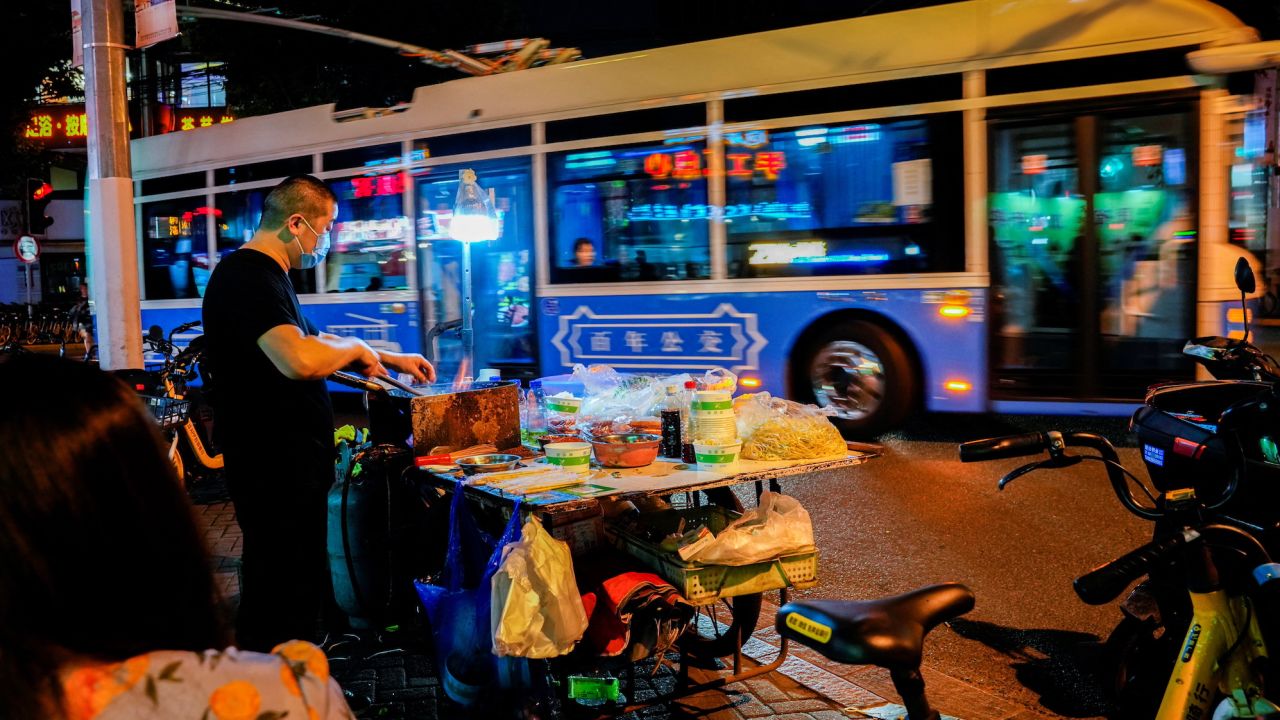Editor’s Note: Sign up for CNN’s Meanwhile in China newsletter which explores what you need to know about the country’s rise and how it impacts the world.
A Chinese wildlife conservation group issued an unusual appeal earlier this month.
The Endangered Species Fund called for volunteers to donate food to hungry animals kept at a zoo inside Dongshan Park in the northern province of Liaoning. The zoo is run by the local government, which was said to be running out of money and therefore unable to feed its charges.
“There are still bear cubs in the park that need to be fed, the [horse] mare is about to give birth and her food has been reduced by half, and the zoo’s staff have not been paid for six months,” the fund wrote in a post on its official Weibo account. “We hope relevant departments can pay attention to this issue!”
The zoo — which has three sika deer, six black bears, 10 alpacas and hundreds of monkeys and birds — doesn’t charge admission and was reliant on state funds, but hadn’t received money for six months, according to the fund.
Its predicament is a symptom of the financial crisis facing many Chinese city and provincial governments, which are having to slash spending as they confront a mountain of debt that swelled during the Covid-19 pandemic and the country’s worst real estate slump on record.
Local governments had to spend billions of dollars on mass testing and lockdowns to enforce President Xi Jinping’s zero-Covid campaign. The crisis in the property market — which resulted in a sharp drop in land sales — deprived them of a major revenue source.
As a result, some are turning to extraordinary measures to raise cash, including fining restaurants for serving cucumber without a license, and truck drivers for carrying overly heavy loads.
In Wafangdian, the city where the zoo is located, a government employee was cited by the state-owned Paper.cn as saying funding had been delayed due to the city’s “fiscal stress.”
A video posted online by the respected outlet China Newsweek showed a handwritten notice posted inside the park, saying: “We haven’t paid our staff for six months. The animals have no food and will soon starve to death.”
CNN wasn’t able to independently confirm the information as calls to the zoo were not answered. But news of the ravenous animals went viral.
The situation at the zoo was only resolved when the city government sent money for salaries and food to the facility days after the online appeal attracted wide attention, China National Radio reported.
But the debt held by China’s regional governments remains a growing risk for the world’s second largest economy.
Willy Lam, a senior fellow at Washington-based think tank The Jamestown Foundation, estimates the borrowing could total between $9 trillion to $12 trillion, including so-called “hidden debt” issued by local government financial vehicles.
These vehicles are legal entities created by Chinese cities to circumvent borrowing restrictions imposed by the central government in Beijing. They are often used to channel funding into infrastructure projects.
Lam told CNN the situation appears to be “out of control.”
“Half of the income generated by local governments is used to pay the interest on their debt,” he said. “They have to grab every means to get money: hence the harsh fines on restaurants and other companies.”
In June, three restaurants in Shanghai were fined 5,000 yuan ($685) each for serving shredded cucumber on top of cold noodles without a license, triggering an uproar.
“This is such a heavy punishment for an absurd reason,” said one user on Weibo, China’s version of X, the platform formerly known as Twitter. “Why hurt small businesses which are the weakest?”

“Cities are doing whatever they can to generate income,” another user said. “Are we going to see more arbitrary fines?”
In May, truck drivers in the central province of Henan questioned the accuracy of weighbridges, used to check vehicles and their loads, after they were repeatedly fined for exceeding limits, according to state-owned news outlet Jiemian.
One driver complained that he had received 58 tickets within two years, totaling 275,000 yuan ($37,687).
A local transport department official told Jiemian that “every county has run out of money” after three years of the pandemic.
“So [we] have to enforce the law properly and impose the fines that should be imposed,” the official was quoted as saying.
Last year, officials in the southern city of Huizhou were found by central government inspectors to have fabricated evidence so they could impose heavy penalties on a trucker for dumping construction waste, according to an article posted on the central government’s website.
At least 15 Chinese cities reported a 100% or more increase in incomes generated from fines and confiscations in 2021, according to a Yuekai Securities analysis of their budgets.
The southern city of Nanchang recorded the biggest jump of 151% compared to the year before, while the eastern city of Qingdao raised the most — 4.38 billion yuan ($600 million).
“The fines are essentially cries of desperation for localities in fiscal distress,” said Logan Wright, director of China markets research at Rhodium Group. “Local governments are responsible for most of China’s social services, but cannot alter tax rates or the shares of taxes they collect.”
The total amount of taxes the Chinese government collects relative to the size of the economy has declined steadily since 2015, he said
The pandemic has made things worse. Overall tax income, at all levels of government, dropped 3.5% in 2022 from the previous year, the biggest fall since China reformed its tax regime in 1993, according to a CNN analysis based on government statistics.
The central government appears to have been shocked by the surge in penalties meted out by local authorities.
Last year, Beijing issued a directive forbidding local governments from imposing “arbitrary fines” to generate income, and dispatched inspection teams to check that the policy was being followed.
But the problem hasn’t gone away. Premier Li Qiang, who took office in March, said in July he would crack down on “arbitrary charges, arbitrary fines” on private businesses.
Fining individuals and small firms will only hurt the economy and damage business confidence, and could fuel dissatisfaction with Beijing.
“I think imposing what appears like arbitrary fines on small businesses to compensate for the significant financial shortfalls in local governments is unwise and potentially counter productive,” said Steve Tsang, director of SOAS China Institute at SOAS University of London.
The scale of financial stress among China’s local governments is so big that “creative” sources of income can only cover a relatively small shortfall, he said.
“Arbitrary fines harm businesses and reduces the entrepreneurial spirit of small business owners,” he added.
What’s worse, it could make life harder for the poor and ignite more public dissent against the authorities, said Joseph Cheng, a retired professor at the City University of Hong Kong.
Read the full article here













Leave a Reply